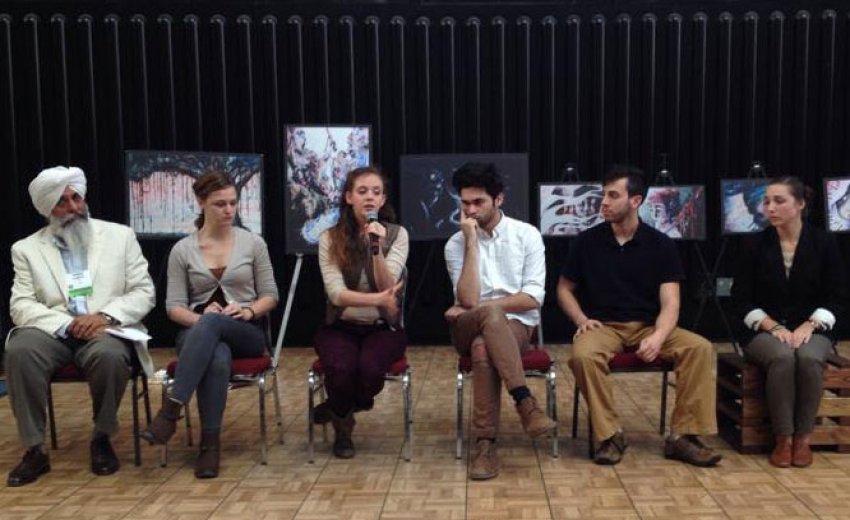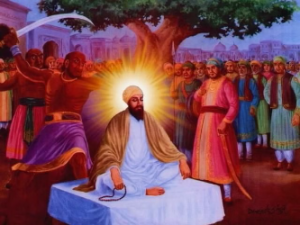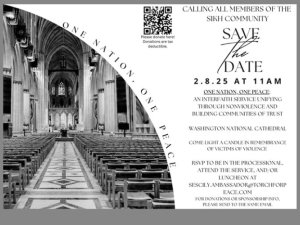Kultar’s Mime Gives 50th Performance at the Parliament of the World’s Religions
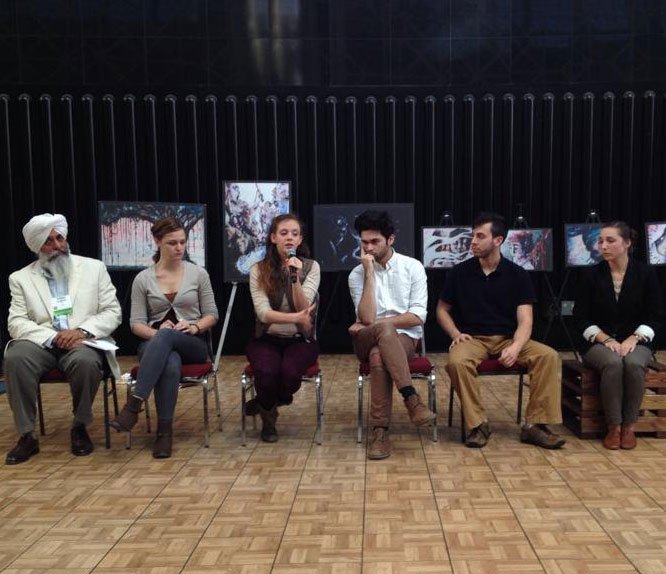
It was my first time seeing Kultar’s Mime. The venue was not ideal. An open foyer in the Salt Palace Convention Center in Salt Lake City, Utah, USA.
Yet, despite the challenges that made it slightly difficult to hear, the performance captivated me. I felt extremely grateful that this play got performed during the Parliament of the World’s Religions. In one 90 minute session, the play and the follow-up questions and answers did more to educate the interfaith community about the 1984 Delhi Pogrom against the Sikhs than any other research project or street protest could.
Auspiciously, when Kultar’s Mime performed on Friday, October 16, 2015 at the Parliament of the World’s Religions, this was its 50th performance.
If you have not yet had a chance to see Kultar’s Mime, the play is based upon a poem written by Sarbpreet Singh from Boston, MA, USA. The poem focuses on the stories of four children who survived the brutality of the 1984 Delhi Pogrom against the Sikhs. The poem flows back and forth between the present reality of the children and the post-traumatic stress visions of the horrors they experienced during the riots. Sarbpreet Singh’s daughter, J. Mehr Kaur, took her father’s poem and turned it into a hauntingly beautiful performance drama. The actors recite the lines of the poem while staging and miming the violence witnessed by the children.
The play, itself, conveys in an hour so much crucial information. It reveals “a world in a blade of grass.” By becoming very specific about particular stories, the depth of the inhumanity unleashed upon the Sikh community during the Pogroms pierces the audience. The drama of the children humanizes the victims, and reminds us of the depth of darkness that people enact upon each other.
It also reminds us that people can and do survive.
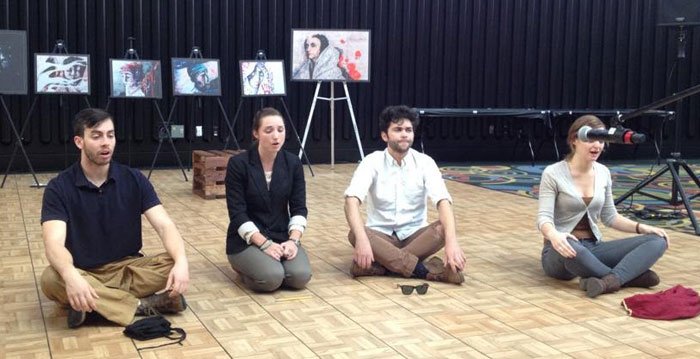
During the question and answer session after the play, Sarbpreet Singh shared that two of the stories in the play were drawn from actual children who survived the Delhi riots. He had read some research from one doctor who did field work with Sikh children survivors of 1984. The main character of the drama, Kultar Singh, is a young deaf and mute Sikh boy, and is based on a real person named Avtar Singh. Deaf and mute, Avtar Singh could only act out through mime what he had seen and witnessed. Namely, the beating and lynching of his own father.
By a series of synchronous events, Sarbpreet Singh actually had a chance to visit Avtar Singh in his home in India. Now in his 30’s, Avtar Singh is married, with children and a job, living a relatively successful life. Sarbpreet Singh shared with Avtar Singh how he had heard his childhood story and written a poem based upon it. Avtar Singh’s response was a simple and heart-felt, “Thank you.”
Even though Kultar’s Mime was originally scheduled for a few performances, thanks to the sponsorship of the Sikh Research Institute, it has played in many cities and universities in the United States, the United Kingdom and Canada. In October of 2014, they took the play to Delhi, India, where the Pogroms originally happened. The play was well received, and many mainstream newspapers gave it very positive reviews.
But the most important thing that Kultar’s Mime does is to give a voice to the voiceless. Art is a human way to express and share emotions, and stories, and to bring other people into a particular experience. Kultar’s Mime has created visibility around the human tragedy of 1984 with many non-Sikh audiences, building understanding, sympathy and support. “We are opening up a conversation that is very difficult to talk about,” the actors of the show said. “Having a voice and saying this is a problem makes people less helpless. The people who committed the massacres are of the same species as the people who are the victims. Human suffering is universal. But so is human compassion and so is love. Ultimately, we want the audience to leave with a feeling of hope that we can stop things like this from happening again.”
